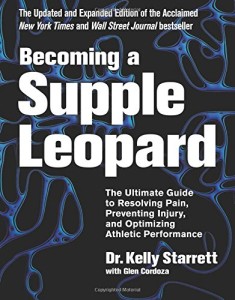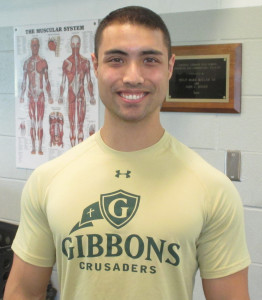The Relationship between Personal Trainers and Strength and Conditioning Coaches
This will be the last part in this series. Next month we will be blogging on the Hot Topic book called “Becoming a Supple Leopard” (The Ultimate Guide to resolving pain, preventing injury, and optimizing athletic performance) by Dr. Kelly Starrett with Glen Cordoza
My name is Sean Cowick, I have a Bachelor’s of Science in Kinesiology from East Carolina University. I am currently pursuing certifications to advance my knowledge and professionalism in personal training and strength and conditioning. I have interned at the Institute of Lifestyle and Weight Management, where I was taught to train the general population. There I worked with the general population, the average person in the entire body of a country, city or district. Most of the general population were older, overweight or obese, and have conditions such as muscle atrophy, osteoporosis, and/or other ailments affecting their health. Also, I am currently continuing my education with my summer internship, at Cardinal Gibbons High School, assisting under Coach Chris Morland, MS, CSCS Director of Strength and Conditioning/ Teacher, as an assistant strength and conditioning coach. There I am learning to train young athletes to excel in sports, speed, agility, and performance. Furthermore, I am working as a personal trainer at Fitness Connection of North Hills in Raleigh, NC. There I am helping people reach their goals by sharing my knowledge to educate others about the necessities of being active, weight lifting, proper form and technique.
In this posting I will be discussing the relationship between Personal Trainers and Strength and Conditioning Coaches. I will be explaining how each are defined and what people expect from these two titles. Then I will discuss how I work, define, and utilize each title to my advantage.
First, let us break down what a personal trainer is, defined by the American College of Sports Medicine (ACSM). According to the ACSM, a Certified Personal Trainer (CPT) is an individual who is qualified to plan and implement exercise programs for healthy individuals or those who have medical clearance to exercise. The CPT needs to be able to motivate and promote adherence as well as develop and administer programs designed to enhance muscular strength, endurance, flexibility, cardiorespiratory fitness, body composition, and/or any of the motor skills related components of physical fitness. [1] This is stating that a CPT needs to be knowledgeable in aspects of training, communication, physiology, and biomechanics.
The majority of people, I have encountered, have believed that personal trainers are people who are required to teach and give undivided attention to them and their needs. At Fitness Connection, I have been expected to provide nutrition guidance, lessons on form/technique, knowledge to help clients reach their goals, and exercise comprehension. Personally, it is exactly what I would expect; so I message clients, via email, text, phone calls, or face-to-face communication. I educate them on exercises and needs of various ways to enhance their abilities, and I help motivate them through encouragement, results, and continuous communication. Being able to communicate consistently and being empathetic is the key, in my opinion, to exercise adherence. It is not enough just to train without communication, lack of communication can influence a client to leave. Because one has to think that a client comes to a CPT to be trained but also to learn and have fun growing. But, it is also important to note, that one needs to know their limits and how many people they are able to consult. Proper time and consideration per client is necessary to help promote exercise adherence.
Next, what a strength and conditioning coach is, defined by the National Strength and Conditioning Association (NSCA). According to the NSCA, becoming a Certified Strength and Conditioning Specialists (CSCSs) are professionals who apply scientific knowledge to train athletes for the primary goal of improving athletic performance. Also, they conduct sport-specific testing sessions, design and implement safe and effective strength training and conditioning programs and provide guidance regarding nutrition and injury prevention. Furthermore, recognizing that their area of expertise is separate and distinct, CSCSs consult with and refer athletes to other professionals when appropriate. [2]
Also, Concerning strength and conditioning coaches, many believe we are there to provide individual focus on one student-athlete at time, and how we can help them improve. A strength and conditioning coach is more vast, it requires much more time, effort and planning to help teams be the best they can be. It needs to be understood that we, coaches, work with entire teams, not specifically one person. A coach will provide more attention to individuals who needs adjustments. We will also, take into consideration their individual needs, if approached or noticed. But, with that said, know that training a team as unit for overall form, technique, performance and safety takes precedence over watching one. Team coaching provides the opportunity to reach out and help many people at one time, which can make a bigger difference. Teaching many student-athletes at once can be difficult and dangerous, and sometimes we some student-athletes can be overlooked. That can appear to be a negative but the overall success and growth weight far outweighs the small probability of overlooking.
I have been working in both fields for approximately 6 months. There is still much I need to learn; I am still researching and continuing my development through conferences, networking and studies. During My past experiences, clients, students, and acquaintances have informed me on their beliefs of what personal trainers and/or strength and conditioning coaches are.
Altogether, each field has its own identity, with its own pros and cons. As a person who educates others in both fields, each field easily crosses over to the other. In the strength and conditioning field I am usually in front instructing a team/group, teaching the same movements over and over to help student-athletes learn. This has increased my confidence in teaching others technique and form. A strength and conditioning coach is consistently teaching form and safety, and ways to help enhance athletes performance. Which I can relate to personal training, it has prepared me for future programming for my clients, and helping them reach their goals. It has also helped me improve interpersonal skills, because unlike with strength and conditioning, it is somewhat necessary to comfort, teach, and entertain clients to maintain their interest. Many personal trainers can agree that entertaining a client is just as important part of the job as educating them.
Overall, it is plain to see that a personal trainer’s focus is helping the client reach their goal and promote overall health and well-being. A strength and conditioning coach is there to help enhance and educate student-athletes to being their best in all sports or a specific sport. Each profession can learn to help each other, which what I try to do. I try to build relationships with the students to improve their attitude towards weight-lifting. I want to create a positive and welcoming atmosphere for all students to want to learn and become better both physically and intellectually. Also, I want to help motivate my clients and for them to understand the importance of consistency in lifting, stretching, nutrition, and cardio. I utilize all the knowledge I have to better myself and others around me and further them in injury prevention.
My main goal is to help everyone I teach/coach the importance of being active, helping them reach their goals, educating them all I know in the fitness field, and lastly why it is never too late to take an interest in health fitness!
[1] ACSM CertifiedPersonal Trainer®. (n.d.). Retrieved from http://certification.acsm.org/acsm-certified-personal-trainer
[2] CSCS® Certification. (n.d.). Retrieved from http://www.nsca.com/certification/cscs/
“The views, opinions, and judgments expressed in this message are solely those of the authors and peer reviewers. The contents have been reviewed by a team of contributors but not approved by any other outside entity including the Roman Catholic Diocese of Raleigh.”


